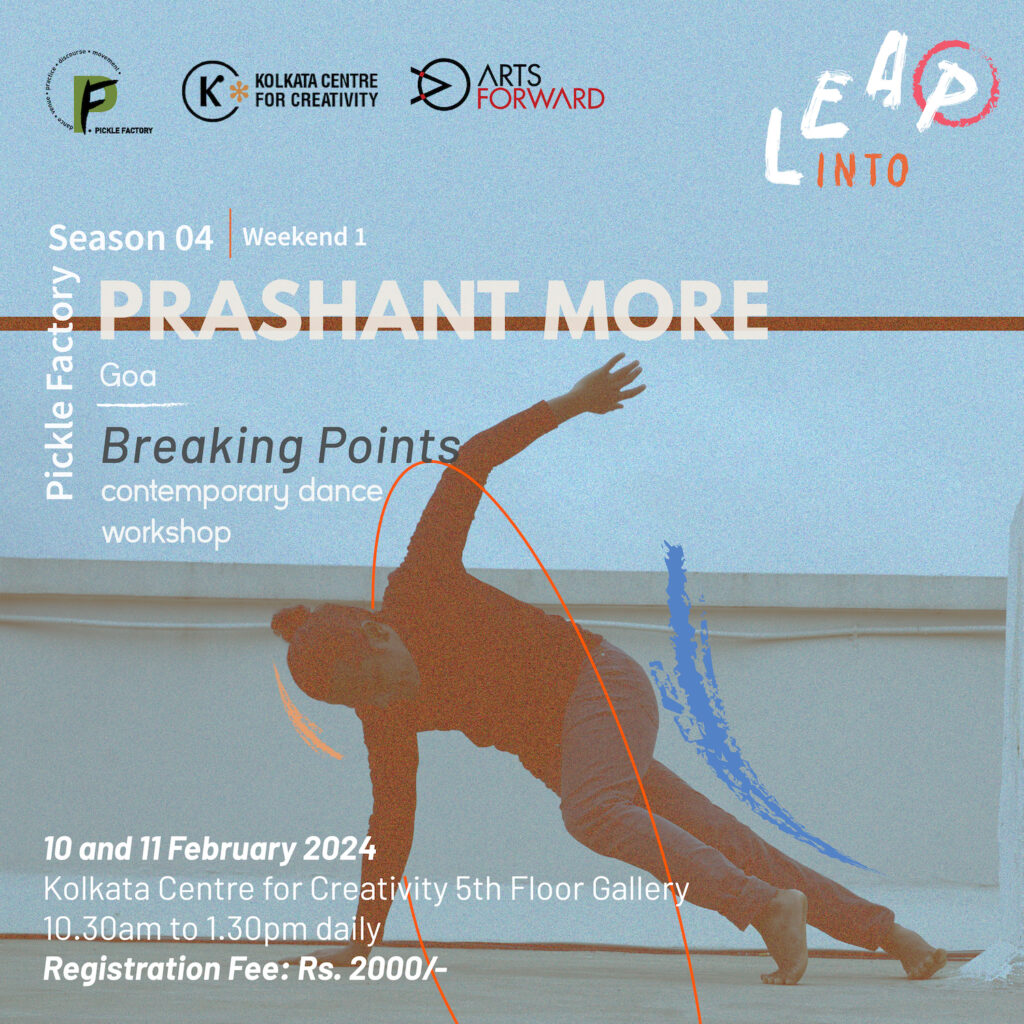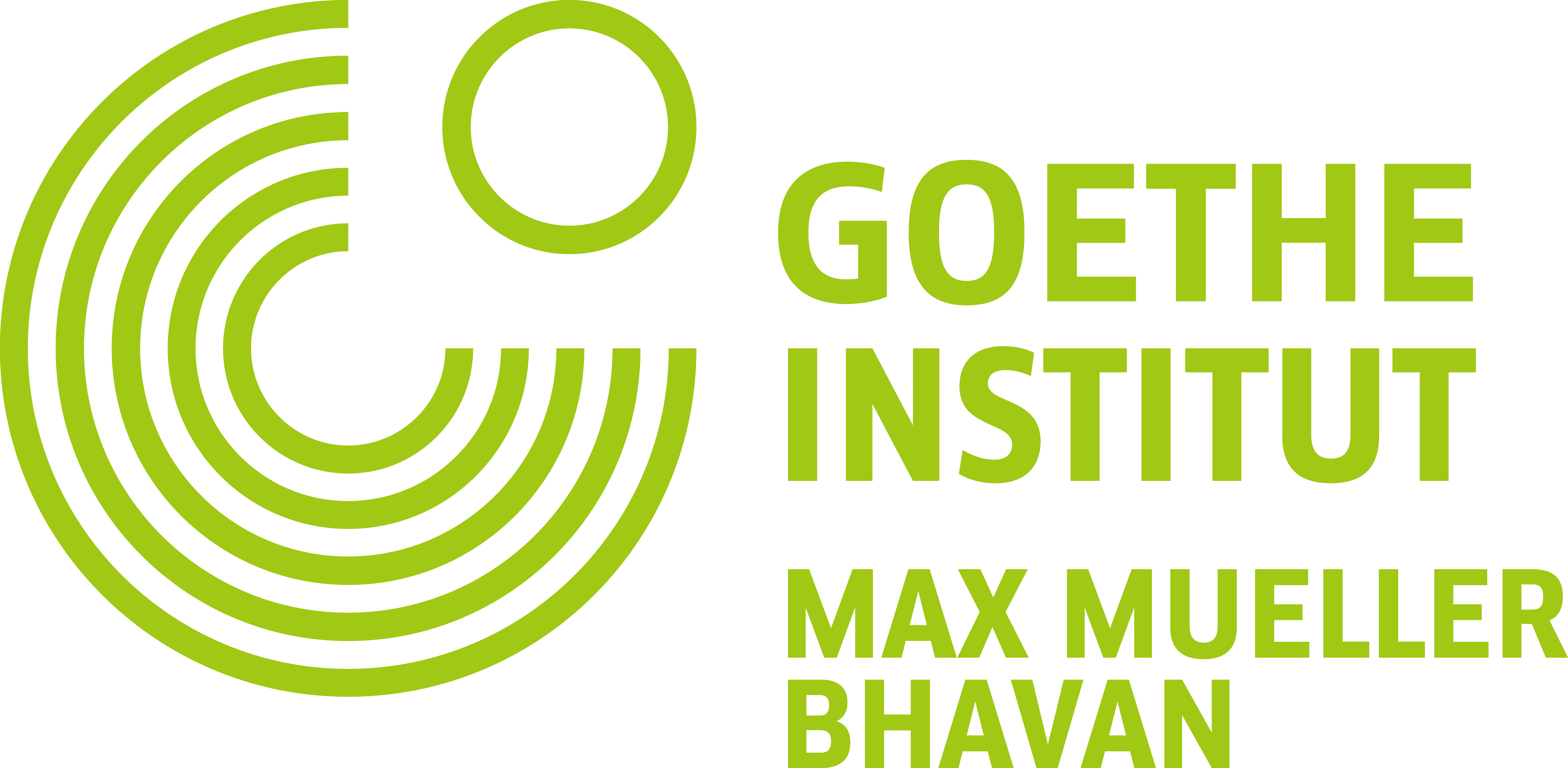
LEAP INTO : PFS4 Weekend 1
Pickle Factory Seasons always feature a wide variety of experiences, but the opening weekend of Season 4 invites us to LEAP INTO the deep end and engage intimately with ONE performance as audiences, ONE workshop as practitioners, ONE exploratory module as arts producers and administrators, and ONE artistic research process.
Train intensively in contemporary dance technique with Prashant More from Goa; learn about the unique requirements to produce dance work in international and Indian contexts with Nelson Fernandez from London; observe the research process of Stephanie Tiersch from Cologne as part of a roundtable discussion; and be profoundly moved by the visceral power of an award-winning performance from Finland. Over two days, our partner and host venue Kolkata Centre for Creativity will turn into a hub for dance and movement practice, where we can watch, learn, participate, question, imagine – and whet our appetites for the rest of the Season.
Saturday, 10 February 2024
10.30am to 1.30pm:
Breaking Points – Workshop with Prashant More
2.30pm to 5.30pm
Producing Dance workshop with Nelson Fernandez
5.45pm to 6.45pm
Pre-show adda: Adapting Literature to Performance
7pm to 8pm
Performance of Johnny Got His Gun
Sunday, 11 February 2024
10.30am to 1.30pm:
Breaking Points – Workshop with Prashant More
3.30pm to 5.30pm
Roundtable with Stephanie Thiersch
5.45pm to 6.45pm
Pre-show adda: Peacebuilding and the Arts
7pm to 8pm
Performance of Johnny Got His Gun
Performances
10 and 11 February ’24 | Johnny Got His Gun
contemporary performance from Finland
Kolkata Centre for Creativity Amphitheatre
7pm
Tickets: Rs. 300/-
Johnny Got His Gun is Finnish theatre-maker Essi Rossi’s avant-garde, one-man adaptation of Dalton Trumbo’s 1938 anti-war novel. Johannes Holopainen plays Joe Banham, a teenage World War One soldier who has had his arms, legs and face blown off, and lies helpless in a hospital bed. Joe spins the audience through his tragedy and a century of growth, violence and loss, questioning the kind of liberty and democracy that he was taught to fight for and dream of.
The performance emerges as a portrait of a horrific, humiliating fate, a scathing anti-war screed – and as a startling piece of theatre.
“a bold, brave performance”
The Scotsman, August 2022
The performances are preceded by discussions from 5.45pm to 6.45pm:
10 February: Adapting Literature to Performance
11 February: The Arts and Peacebuilding
Venue
Kolkata centre for Creativity
Dipak Road, Eastern Metropolitan Bypass, Anandapur, Adarsha Nagar, Kolkata, West Bengal 700107
Workshops
10 and 11 February ’24 | Breaking Points
contemporary dance workshop on physical skills, dance composition and movement research with Prashant More
Kolkata Centre for Creativity 5th Floor
10.30am to 1.30pm daily
Workshop Fee: Rs. 2000/- (both days) / Rs. 1200/- (one day)
Breaking Points is a Physical Movement Practice for dancers/movers that develops physical skills and intelligence by actively deconstructing the past and current movement vocabulary and patterns. The practice encourages creation and development of dance language derived consciously through stepping out of one’s comfort zone. The workshop will provide various frames of tasks, tools and methods to develop materials working with space, time, bodies, and objects to help make choices while creating. Through work alone, together, in small groups or pairs, the workshop gradually explores individual practice and builds awareness of our interests in movement and physical performances.
Prashant More will also be working with Somya Kautia to create a site-specific work with local dancers for LEAP THROUGH – PFS4 Weekend 2
Read more about that here.
Venue
Kolkata centre for Creativity
Dipak Road, Eastern Metropolitan Bypass, Anandapur, Adarsha Nagar, Kolkata, West Bengal 700107
10 February ’24 | Producing Dance
a workshop with Nelson Fernandez for artists, producers, presenters, and administrators wanting to explore issues involved in the presentation of dance as an art form
Kolkata Centre for Creativity 5th Floor
2.30pm to 5.30pm
Workshop Fee: Rs. 1000/-
How do dance artists and promoters discuss what is ideal, what is essential, and what is mutually acceptable? How do we get to a situation where there is the mutual trust that allows us to arrive at creative solutions. The workshop will explore the challenges in presenting dance and creating an environment supportive of dance; offering the required support to artists to create the best work; ensuring mutual trust between presenter and artist; and developing an engaged audience. The process will be practical and participative led by the facilitator – we will jointly ask the questions and seek answers that emerge from our collective experience.
Venue
Kolkata centre for Creativity
Dipak Road, Eastern Metropolitan Bypass, Anandapur, Adarsha Nagar, Kolkata, West Bengal 700107
Other Events
11 February ’24 | Talking Lament with Stephanie Thiersch
Kolkata Centre for Creativity 5th Floor
4pm to 5.30pm
By invitation only
A round table with Stephanie Thiersch, Trina Nileena Banerjee, Debaroti Chakraborti and Souradeep Roy, sharing and exchanging around the relationships between rituals of lament and performance in different cultures.
10 & 11 February ’24 | Pre-performance Addas
Kolkata Centre for Creativity Amphitheatre Foyer
5.45pm to 6.45pm
included in tickets for Johnny Got His Gun
10 Feb: Adapting Literature to Performance
Malavika Banerjee (Director, Tata Steel Kolkata Literary Meet) in conversation with Essi Rossi, director of Johnny Got His Gun about the process of translating text from the page to the stage.
11 Feb: Peacebuilding and the Arts
Performers Titas Datta and Shadab Kamal present two short monologues, followed by a discussion between dramaturg and cultural interlocutor Rustom Bharucha and Essi Rossi about making art in a time of war
Venue
Kolkata centre for Creativity
Dipak Road, Eastern Metropolitan Bypass, Anandapur, Adarsha Nagar, Kolkata, West Bengal 700107
Venue
Kolkata Centre for Creativity
A unit of Anamika Kala Sangam Trust (AKST), Kolkata Centre for Creativity(KCC) is a multi-disciplinary interactive art and creativity centre located in Kolkata, West Bengal. The 70,000 sq. ft. centre champions the Art and Cultural landscape of contemporary India with a belief that while the popular contribute to the academic, the academic in turn, uplifts the popular. Inaugurated on 21st November 2018, KCC comprises of an Amphitheater for performances & creative contemplation, Exhibition & Learning spaces, Dance studio, a Conservation lab, Books & Materials Library, a Creative Culinary space, a Craft & Design outlet and a Skills Development Maker’s section to create prototypes using the latest digital technologies. Experience, Learn, Explore, Conserve and Innovate are five key pillars of KCC.
Venue
Kolkata centre for Creativity
Dipak Road, Eastern Metropolitan Bypass, Anandapur, Adarsha Nagar, Kolkata, West Bengal 700107
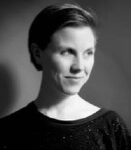
Essi Rossi is a Finnish theatre director who lives in Helsinki and works variously with theatre and live arts. Her works are more or less tied to the question of change in the era of mass destruction and desires. She is driven by candid ways of working with these themes.
Other than Johnny Got His Gun, Rossi’s most important works are Leena Krohn’s Tainaron: transmissions from the posthuman world of insects (Helsinki Festival and National theatre of Finland 2018), Vladimir Sorokin’s ICE: about the structures of fascism in the form of a cult-meeting (Klockriketeatern and Von Krahl, Estonia 2018), and NIGHTSCHOOL: an overnight journey to an unknown destination and guided tour through different levels of darkness (Baltic circle Festival 2021).
Rossi’s latest work, Ejaculation Falls, is a celebration of sexual diversity, where six local experience experts gather for a picnic to talk about their experiences with sex, sexuality, gender and desires (Baltic Circle International Theatre Festival Helsinki 2021, SICK! festival Manchester 2022).
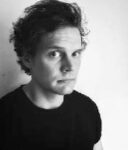
Pauli Riikonen is a Helsinki based sound designer and composer who works extensively in theatre, dance, circus, performance and music. The works designed by him have been presented in Finland and widely around Europe, e.g. The UK, Germany, Estonia and Belgium.
Riikonen’s stage aesthetics focuses on sound masses created by overlapping textures. He creates sound-spaces that can be not only heard, but also felt in the body. His musical interest directs towards loops, sampling and stretching the boundaries. Recently, his work has focused on performances that deal with change and hope.
In addition to stage works, Riikonen has made radio plays, sound art works, sound design for visual art works and produces electronic music under the name Fluid Armstrong.Helsinki 2021, SICK! festival
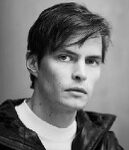
Johannes Holopainen is a Finnish actor with a diverse career encompassing theatre, film, and television. Helsinki-born Holopainen studied acting at the University of Arts with an MA in Theater Arts. Holopainen has performed in leading drama, comedy, and musical theater roles around Helsinki, including The National Theater and KOM-Theater. The monologue Johnny Got His Gun landed him the Grand Prix at Pärnu International Theatre Festival in 2016. The same company’s new monologue performance, The Moustache, ran in Helsinki in fall 2022.
Johannes Holopainen played the lead in Unknown Soldier (dir. Aku Louhimies), the highest-grossing film ever in Finland. His other film and television work include Heavy Trip, All the Sins, Cargo, and J-P Valkeapää’s next film, Hit Big. Holopainen is a Berlinale Talents Alumni from 2021.
During his career, Holopainen has received numerous nominations, and his works are widely awarded and acclaimed by the public and the press.
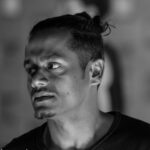
Prashant More is an interdisciplinary artist from India. He engages in the field of dance as a performer, teacher, choreographer and dance filmmaker. He works towards creating immersive, intimate and experimental expressive physical performances. He studied dance in India and Europe. He graduated from Attakkalari, India, and worked as a company dancer. Later, he acquired intensive training in ‘Physical Experimental Performances and Choreography’ in Amsterdam and Berlin. As an educator, he teaches all ages and backgrounds as well as dancers, actors and performers, both professionals and non-professionals. His current research module is ‘Breaking Points’ in which the approach is to find an authentic flow of the physical body.

After studying politics and philosophy at university, and beginning a doctoral degree in international relations, Nelson Fernandez decided to start full-time dance training. Intense study of classical ballet, Graham, Limon, and Cunningham techniques led to work with companies in the UK, continental Europe, and the USA performing in a wide spectrum of works by contemporary and classical choreographers. His work as a dancer, rehearsal director, and choreographer in West End musicals, TV dance shows, film, opera, and regular teaching in schools around Europe rounded out a professional career that lasted 22 years.
He turned his focus to the production of dance and drama in 1993. Through several work placements in theatres and festivals, he acquired a practical understanding of the basics of arts management, presentation, and production., and developed a clear understanding of how to support artists from the perspective of the presenter and the producer. He worked with British Council’s Visiting Arts for 12 years, ultimately as its Director of Operations. This led to extensive travel around the world and to the development of a variety of training programmes for arts producers in India as well as in a dozen other countries.
He formed NFA International Arts & Culture in 2008, which continues to develop various kinds of arts projects, including training programmes, the creation and touring of dance and drama productions, strategic analyses of arts-related issues for clients around the world, and the international touring of UK based companies.

Stephanie Thiersch is German choreographer and media-artist based in Cologne, Germany. She founded the company MOUVOIR in 2000 and has since developed over 50 stage-works presented in festivals and theaters around the world, films and installations. Her work is characterised by transdisciplinarity drawing from a multitude of resources, knowledge and the inspiration that fuels the work. Moreover, she is interested in challenging the genre dance by combining inherently choreography with new media, visual arts and with music. In this context she creates large independent productions with orchestra, choirs, string quartet, ensembles for new musique and folkloric music or DJs.
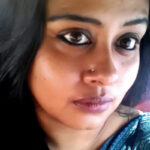
After completing her MA in English Literature from Jadavpur University, Trina Nileena Banerjee proceeded to complete a Masters of Studies (M St.) in English at the University of Oxford. For her PhD, she worked on a history of women in the group theatre movement in Bengal between 1950 and 1980. She has also been researching the interfaces between women’s movements and political theatre in contemporary Manipur for several years. Her essays and reviews on these and other subjects have appeared in national and international journals as well as several edited volumes. She writes both in English and Bengali. Between 2011 and 2013, she taught at the Theatre and Performance Studies Department at the School of Arts and Aesthetics at Jawaharlal Nehru University. She is currently Assistant Professor in Cultural Studies at the Centre for Studies in Social Sciences Calcutta.

Debaroti’s research interests broadly covers an interdisciplinary approach towards performance, body, space and text. Her doctoral thesis titled ‘Border Narratives of Women in India and Latin America: Re-inventing Selves, Re-creating Spaces’ focuses on contemporary border experiences, marginalities and gender identities as represented in scholarly/poetic/performative explorations. She has also been designing research-based performances with artist-researchers and university students that focus on inter-cultural and cross-cultural transactions in the realm of performance. She explores the location of literary text on stage and the visuality of the body as narrative when it intervenes into the textual narrative to create a performance.
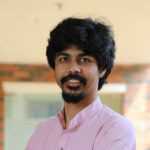
Souradeep Roy is currently a PhD candidate in Drama at Queen Mary, University of London on a Principal’s Research Studentship. Besides academia he worked as an editor both for art journals, and for online media outlets. He also worked as a freelance journalist with bylines in Business Standard, Indian Express, The Wire, and Scroll, among others. Prior to studying drama at Queen Mary, he studied English literature in universities of Calcutta and Delhi, and theatre in Jawaharlal Nehru University, Delhi.
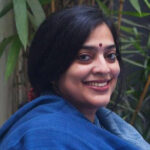
Malavika Banerjee began her working life as a journalist in 1995 before starting Gameplan, a sports marketing company in 1998. Over the next 12 years Gameplan became and still is one of India’s top companies in this field. In 2012, she decided to go back to her first love – literature – to start the Kolkata Literary Meet. Since then, the Meet has stood for free expression and yet chosen quiet, reflective discussion over high-octane debates to achieve this. Her engagement with the arts and the history of Bengal also manifests itself in Byloom, a handloom and handicraft store in Kolkata that has now become a necessary pit-stop for all those visiting the city.
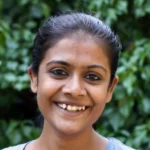
Post graduate from London International School of Performing Arts, Titas has been a practicing theatre maker and performer for almost two decade, working for NSD Repertory Company, The Company Theatre, Shapeshift Collective and many more national and international theatre companies. Identifying as a queer- female theatre maker and arts manager from Kolkata Titas is the artistic director of Birati Samuho Performers Collective – queer and female centric theatre collective that specialises in exploring unheard and unseen narratives from and for marginalised communities. She/ they has been performing extensively across Europe, Australia and Asia for most of her performing career so far. Her/their artistic questions find their locus around performativity of gender marginalised bodies in public/ performance space has been manifesting into live creations. She/they advocates for inclusive content and practice, accessibility of theatre for all, safe space for actors/ performers and self-sustenance of creative organisations in her/their creative practice.
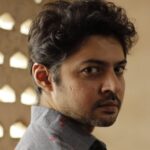
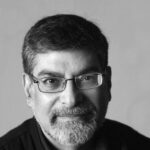
Trained as a dramaturg at the Yale School of Drama between 1977-1980, Rustom Bharucha received his Master of Fine Arts degree from the University of Yale in 1980 followed by a doctorate in Dramatic Criticism in 1981. Over the years he has published a number of books including Theatre and the World (1993), The Question of Faith (1993), Chandralekha: Woman/Dance/Resistance (1995), In the Name of the Secular (1999), The Politics of Cultural Practice (2000), Rajasthan: An Oral History (2003), Another Asia: Rabindranath Tagore and Okakura Tenshin (2006), Terror and Performance (2014), and, more recently, Performing the Ramayana Tradition: Enactments, Interpretations, and Arguments (2021), co-edited with Paula Richman, and The Second Wave: Reflections on the Pandemic through Photography, Performance and Public Culture (2022).
A leading interlocutor in the area of intercultural performance, both at theoretical and practical levels, he was a Fellow at the International Research Centre/Interweaving Performance Cultures in Berlin between 2010-2012. He has also attempted to redefine the relationship between culture and development through a number of theatre workshops with marginalized communities in India, the Philippines, Brazil, and South Africa on issues relating to land and memory, the politics of touch, re-enactments of history, and social transformation. Between 2007-2009 he worked as the Project Director of Arna-Jharna: The Desert Museum of Rajasthan devoted to the study of traditional knowledge systems and as the Festival Director of the Ramayana Festival at the Adishakti Laboratory for Theatre Research in Puducherry, India, between 2010-2011.
Acknowledgements
Abeer Gupta, Anna Princely, Astrid Wege, B. Ananthakrishnan, Geetanjali Kirloskar, Hongjia Qi, Jaleel, Jasneet, Jayachandran Palazhy, Madhu M,
Malavika Banerjee, Paramita Saha, Rauli Kostamo, Richa Agarwal, Ruchira Das, Sharmistha Sarker, Shashwat Goenka,
Subroto Haldar, Surendranath Sinha, Tausif Rahman, Ushmita Sahu


